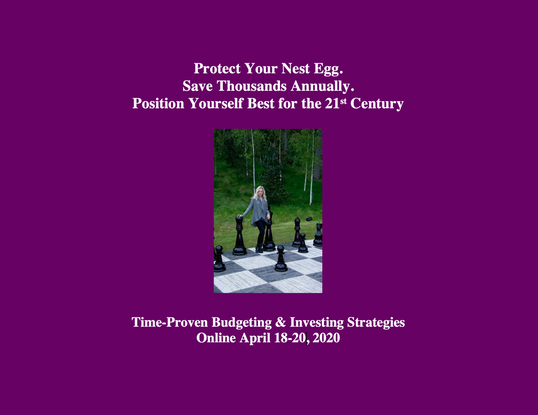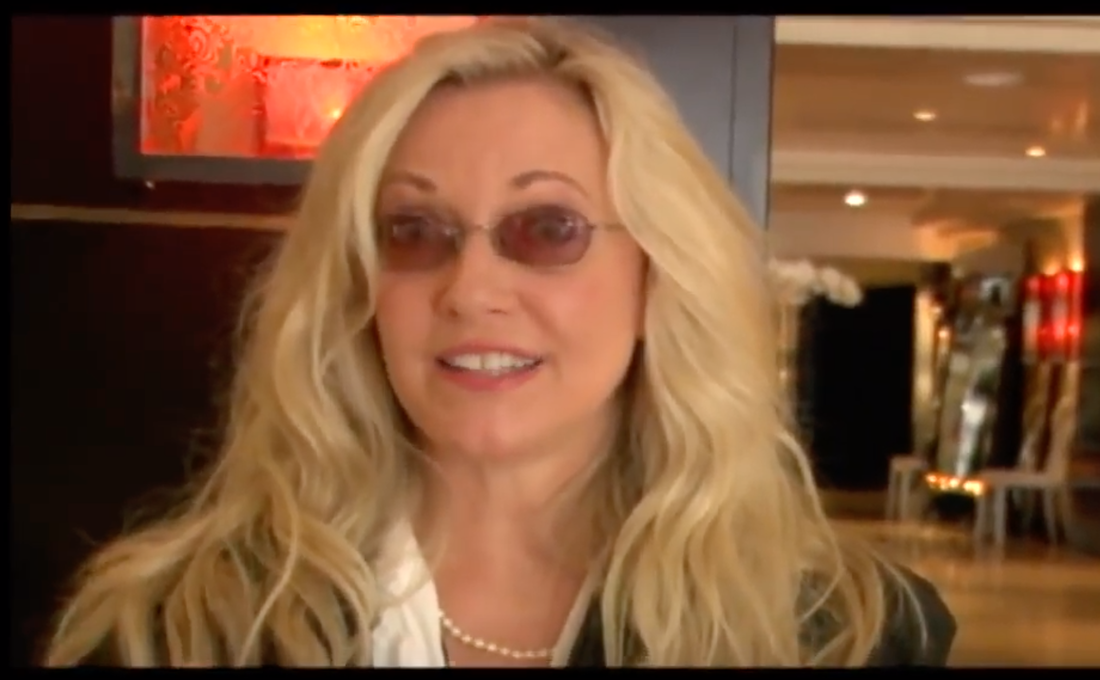|
On Thursday, April 2, 2020, we all woke up to a report that 6.6 million Americans had filed for unemployment claims. Projections are that unemployment could hit 15% by May (next month). While we have all been hunkered in quarantine protecting our health and the health of others, there is now a great need to protect and preserve our homes, jobs and nest eggs. It is astonishing just how fast things have changed. If you have been hit by any health tragedy, then my heart and prayers are with you and your family for health and healing. If you are numb and confused, that is understandable, particularly if the counsel you are receiving about your best plan forward with your wealth is just to “ride it out.” That is not a good plan in the 21st Century. Click to read the blue-highlighted blog for additional information why. The solution when you are in doubt is not to just have blind faith that someone or the government is going to bail you out. Of course, if you qualify for unemployment, an SBA bridge loan or other help, and that will buy you a few months, do it. However, the solution for the challenges that lie ahead is to get paddling to shore yourself. Now. Below are a few resources to help. This is not a complete list of the options that might be available to you. However, it is intended to point you in the right direction, so that you can find and use real resources that work. Beware of quick fixes, sure shots and "get rich quick" ideas. These are hallmarks of scams; shysters come out of the woodwork in times like these. First I’m listing all of the challenges that are covered in this blog, and beneath that 21st Century Solutions on each point. 16 Challenges Earned Income If you just lost your job, then… If you are a small business owner or an entrepreneur, then… Protect Your Wealth and Passive Income If you lost more than 25% in the Great Recession, then… If you have more than 10% of your retirement invested in the company you work for, then… If you love your dividend paying stocks, then… If you have bonds or bond funds, then… If you have an annuity or life insurance, then… If you have money market funds or high-yield CDs, then… If you have private placement REITs or other investments that are not publicly traded, then… If you have a managed investment portfolio, then… If you’ve been trading options or day-trading as a side job, then… Protect Your Home and Budget If your basic needs are more than 50% of your budget, then… If you purchased real estate or a home within the last three years, then… If your home is underwater on the mortgage, then… If you are drowning in debt, then… If you have student loan debt, or are preparing to go to college, then… 16 Challenges and Solutions And here is additional information on each point. Earned Income If you just lost your job, then file for unemployment and consider how you can reduce your expenses, dramatically, until you find gainful employment again. This may require getting very creative. However, there might be more options available to you than you realize. Read the Thrive Budget section of The ABCs of Money for tips and resources. You can personalize your own Thrive Budget using our free web app. If you are a small business owner or an entrepreneur, then you may qualify for an SBA bridge loan. Go to SBA.gov to file an application. (They are making it very quick and easy.) You might also think creatively about how you can be an essential business, and contribute to the crisis (while also keeping your business running). As an example, car companies are going to manufacture ventilators. (No one is out purchasing cars right now.) Protect Your Wealth and Passive Income If you lost more than 25% in the Great Recession, then you need to re-evaluate your retirement and investing strategy. If you didn’t make any changes to the plan you had then, you are more vulnerable now. There is a time-proven solution that earned gains in the last two recessions and has outperformed the bull markets in between. It’s not too late to preserve your assets. The time to get this information is now. Email [email protected] or call 310-430-2397 to receive pricing and information on receiving an unbiased 2nd opinion. You can personalize a sample pie chart using our free web app. (Links are above on the free web app banner.) If you have more than 10% of your retirement invested in the company you work for, then your plan needs to be better diversified. A general guideline would be less than 10%. However, as you near retirement, this amount should be even smaller. Personalize a sample pie chart to see what a diversified plan looks like for you at this time in your life. One more thing: individual companies are riskier than purchasing a fund that has multiple companies in it. If you love your dividend paying stocks, then you need to understand that the companies receiving bailout funds are being asked to suspend their dividends and buybacks. That means that value funds are vulnerable to capital loss and loss of income. Remember that the higher the dividend, the higher the risk. Bonds fall into this caveat, too. Click to read a letter from the U.S. airlines organization promising to suspend stock repurchases and dividends while the bailout loan is still outstanding. U.K. banks have already suspended dividends and repurchases through the end of 2020. If you have bonds or bond funds, then you need to evaluate the risk that you have taken on. Traditionally, your bonds and bond funds earn gains in recessions. However, in 2018, many bonds and bond funds lost money. This has a lot to do with the amount of leverage in the world, which is unprecedented and astronomical, and also the fact that interest rates are starting out too low. There is a list of blogs at the end of this blog where you can educate yourself further on this topic. There is also a section on bonds in the 3rd edition of The ABCs of Money. It’s time to learn what’s safe in a world where bonds are vulnerable to downgrades and capital loss. If you have an annuity or life insurance, then it’s important to heed the warning of Warren Buffett. In his CNBC interview on February 24, 2020, Buffett said, “The ones that really get hurt are either life insurance or annuity companies that have promised returns. If you promise somebody an annuity to pay them 3% or 4%, and now you find that you’re reinvesting your money at 1% or something, you’re going to disappear.” Annuities, life insurance and even many bank products are not FDIC-insured. So, it’s key to examine the safe side of your portfolio now. A good rule of thumb today would be heeding the counsel of Roy Rogers, who said, “I’m more concerned with the return of my money than the return on my money.” Don’t reach for yield. The safe money is paying nothing. Anything above that could be riskier than you realize. If you have money market funds or high-yield CDs, then you must take a forensic look at the fine print. With money market funds, there are now redemption gates and liquidity fees. With high-yield CDs, many are not FDIC-insured, some are subject to capital loss and a lot of them have an opportunity risk. Learn more in my blog, “The New Bank Bail-in Plan on Your Dime.” If you have private placement REITs or other investments that are not publicly traded, then you need to get an unbiased 2nd opinion on these strategies immediately. Read D&T’s story now to understand why. (Click on the blue-highlighted words to access.) If you have a managed investment portfolio, then have a serious look back to how well your portfolio did in the last recession (2008) and in the Dot Com Recession (2000-2002) before that. If you have a history of riding the Wall Street rollercoaster up and down, losing more than a third in the recessions and then spending the bull market crawling back to even, then now is the time to learn a new, time-proven plan. An easy way to see just how well your plan has done is to request a chart of your managed plan compared to the S&P500 for the last 15 years. Most managed plans are shadowing the market, but performing about 2% under, due to fees. If you’d like to learn a plan that earned gains in the last two recessions and has outperformed the bull markets in between, then join us for our Online Investor Educational Retreat April 18-20, 2020. Click on the banner ad and flyer (below) for additional information. Email [email protected] or call 310-430-2397 to learn more. If you’ve been day-trading and/or trading options, then it’s time to learn the true statistics on the efficaciousness of that strategy. Many online discount brokerages have their own profitability and monetization business plan based on options and trading. However, even the author of options strategy, Nobel Prize winning economist Myron Scholes, had a hedge fund go belly-up (Long Term Capital Management. Google it.). Protect Your Home and Budget If your basic needs are more than 50% of your budget, then it’s time to re-design your life. I know a lot of people who have cut out fun and café lattes, and who think they live very frugal lives, who are still taking on debt to make ends meet each month. The reason is that big-ticket bills – like housing, medical care, medical insurance, transportation, utilities and more – have skyrocketed, while wages have stagnated for nearly three decades. There are solutions. You can stop making the taxman, debt collector, landlord, car company, insurance salesman, medical insurance company, gasoline station and utility company rich at your own expense. Wisdom is the cure. You’ll need to make brave choices. It starts with learning budgeting strategies that work in the 21st Century, and letting go of the past. If you purchased real estate or a home within the last three years, then it is possible that you are vulnerable to capital loss. With the amount of unemployment that has hit the world, there just won’t be as many buyers out there, which means that real estate prices could go down. There is a lot of shadow inventory that is not showing up on the Multiple Listing Services. With high unemployment, many people will have to rethink their living situation. There is a trend toward intergenerational housing, micro-housing and home-shares. So, be careful reading the statistics provided by realtors, mortgage brokers and any association they belong to. (That’s how so many people got into trouble before the Great Recession.) Incidentally, if you have a lot of equity built up in your home and you intend to stay there for at least 5-7 years, then now might be a great time to lock-in a very low fixed-interest rate mortgage. If your home is underwater on the mortgage, then you need debt solutions now. There are many case studies in the real estate section of The ABCs of Money to help you. You also need to read the Debt section of that book to understand how to protect your wealth and life boat, so that the bank doesn’t suck away all of your assets, and then foreclose on you any way. Before the Coronavirus Recession, there were still 3.5 million mortgages that were seriously underwater (source: Attom Data). If you are drowning in debt, then you must adopt a Thrive Budget ® and learn how to provide for your own future. If you’ve been waiting to save/invest until you pay off your debt, then you are making the debt collector rich at your own expense. There are many reasons why this is a bad idea, and easy ways to turn your head, budget and wealth strategies around so that you can increase your wealth and have your debt be a much smaller portion of your assets/debt ratio. Check out the Debt and Thrive Budget sections of The ABCs of Money for 21st Century budgeting and debt solutions. If you have student loan debt, if you are a tween or teen planning for college or if you are considering getting an advanced degree, then it’s time to read The ABCs of Money for College. There you’ll learn how to get a better degree for up to half the cost. This is going to be imperative in the months and years ahead. You don’t want to fall into the College Experience Debt Trap where you just go to whichever school will have you, sign up for however many loans you’ll need to pay for the schooling, and then pray and hope you get a great job when you graduate. That meandering party path has produced more than $1.5 trillion in student loan debt, with over 20% in forbearance or default, and a boatload of stress for those college graduates who are paying these loans off. There is a better plan outlined in The ABCs of Money for College. Bridging the Gap It is understandable if you are tempted to tap your retirement or home equity to pay your mortgage for a few months – to bridge the gap while you create a more sustainable plan. In this scenario, if you borrow against your retirement fund, then you should be able to do this without any early withdrawal penalty, as long as you have a strategy to pay yourself back. You’ll need to dot the I’s and cross the T’s to do this right. Consult IRS.gov and/or your CPA. However, in general, tapping your retirement or your home equity to pay off debt or to fund an unsustainable lifestyle, is a bad idea. There are many reasons for this. (Consult The ABCs of Money debt, budgeting and investing sections for a more detailed explanation.) So, bridge the gap, but don’t get stuck there. If your new life requires bold, brave changes to add up, the sooner you address this, the better. Always put all of the options on the table, including the unthinkable options, before making your choice. Tapping your retirement or home equity to pay off a mortgage, or loaning yourself the money to pay off high-interest debt, might be a good idea in the short term. Do not do this without a carefully crafted plan, and to not make this plan permanent. 21st Century Solutions for our New World What is needed is a thorough redesign of your budgeting, investing and retirement plan to adopt a strategy that preserves your wealth and retirement from the Wall Street Rollercoaster. You’ll need to embrace a home and lifestyle that you can afford. You’ll want to stop making everybody else rich at your expense. That requires wisdom and basic financial literacy (The ABCs of Money and the Investor Educational Retreats.) Remember that debt is, at its heart, a budgeting problem. That doesn’t mean that you are a shopaholic. It means that today’s world doesn’t add up. The only way you can avoid taking on debt is to think creatively about how to keep your expenses down and to increase your wealth through investing and money while you sleep – just like wealthy people do. Stay strong. Keep your faith alive. Smart strategies do work. The sooner they are adopted the better.
Other Blogs of Interest Wall Street Insiders are Selling Like There is No Tomorrow. Why Are My Bonds Losing Money? Tomorrow is Going to be Another Tough Day. Price Matters. Stock Prices are Still Too High. Should You Ride Things Out? 7 Recession Indicators Corona Virus Update. The Bank Bail-in Plan on Your Dime. NASDAQ is Up 6X. CoronaVirus: Which Companies and Countries Will be Most Impacted. Is Tesla Worth GM and Ford Combined. Artificial Intelligence is on Fire. Is it Time to Buy S'More? Take the Retirement Challenge. 2020 Investor IQ Test. Answers to the 2020 Investor IQ Test. The Cannabis Capital Crunch and Stock Meltdown. Does Your Commute Pollute More Than Planes? Are Health Care Costs Killing Your Budget? 2020 Crystal Ball. The Benefits of Living Green. Featuring H.R.H. The Prince of Wales' Twin Eco Communities. What Love, Time and Charity Have to do with our Commonwealth. Interview with MacArthur Genius Award Winner Kevin Murphy. Unicorns Yesterday. Fairy Tales Today. IPO Losses Top $100 Billion. Counting Blessings on Thanksgiving. Real Estate Prices Decline. Hong Kong Slides into a Recession. China Slows. They Trusted Him. Now He Doesn't Return Phone Calls. Beyond Meat's Shares Dive 67% in 2 Months. Price Matters. Will There be a Santa Rally? It's Up to Apple. Will JP Morgan Implode on Fairy Tales and Unicorns. Harness Your Emotions for Successful Investing. What the Ford Downgrade Means for Main Street. The Dow Dropped Over 1000 Points Do We Talk Ourselves into Recessions? Interview with Nobel Prize Winning Economist Robert J. Shiller. Ford is Downgraded to Junk. From Buried Alive in Bill to Buying Your Own Island. The Manufacturing Recession. An Interview with Liz Ann Sonders. Gold Mining ETFs Have Doubled. The Gold Bull Market Has Begun. The We Work IPO. The Highs and Hangovers of Investing in Cannabis. Recession Proof Your Life. China Takes a Bite Out of Apple Sales. Will the Dow Hit 30,000? A Check Up on the Economy Red Flags in the Boeing 2Q 2019 Earnings Report The Weakening Economy. Think Capture Gains, Not Stop Losses. Buy and Hold Works. Right? Wall Street Secrets Your Broker Isn't Telling You. Unaffordability: The Unspoken Housing Crisis in America. Are You Being Pressured to Buy a Home or Stocks? What's Your Exit Strategy? It's Time To Do Your Annual Rebalancing. Cannabis Crashes. Should You Get High Again? Are You Suffering From Buy High, Sell Low Mentality? Financial Engineering is Not Real Growth. The Zoom IPO. 10 Rally Killers. Fix the Roof While the Sun is Shining. Uber vs. Lyft. Which IPO Will Drive Returns? Boeing Cuts 737 Production by 20%. Earth Gratitude This Earth Day. Real Estate is Back to an All-Time High. The Lyft IPO Hits Wall Street. Should you take a ride? Cannabis Doubles. Did you miss the party? 12 Investing Mistakes Drowning in Debt? Get Solutions. CBD Oil for Sale. The High Cost of Free Advice. Apple's Real Problem in China: Huawei. 2018 is the Worst December Since the Great Depression. Will the Feds Raise Interest Rates? Should They? Learn what you're not being told in the MSM. Why FANG, Banks and Your Value Funds Are in Trouble. Russia Dumps Treasuries and Buys Gold OPEC and Russia Cut Oil Production. Important Disclaimers Please note: Natalie Pace does not act or operate like a broker. She reports on financial news, and is one of the most trusted sources of financial literacy, education and forensic analysis in the world. Natalie Pace educates and informs individual investors to give investors a competitive edge in their personal decision-making. Any publicly traded companies or funds mentioned by Natalie Pace are not intended to be buy or sell recommendations. ALWAYS do your research and consult an experienced, reputable financial professional before buying or selling any security, and consider your long-term goals and strategies. Investors should NOT be all in on any asset class or individual stocks. Your retirement plan should reflect a diversified strategy, which has been designed with the assistance of a financial professional who is familiar with your goals, risk tolerance, tax needs and more. The "trading" portion of your portfolio should be a very small part of your investment strategy, and the amount of money you invest into individual companies should never be greater than your experience, wisdom, knowledge and patience. Information has been obtained from sources believed to be reliable however NataliePace.com does not warrant its completeness or accuracy. Opinions constitute our judgment as of the date of this publication and are subject to change without notice. This material is not intended as an offer or solicitation for the purchase or sale of any financial instrument. Securities, financial instruments or strategies mentioned herein may not be suitable for all investors. Comments are closed.
|
AuthorNatalie Pace is the co-creator of the Earth Gratitude Project and the author of The Power of 8 Billion: It's Up to Us, The ABCs of Money, The ABCs of Money for College, The Gratitude Game and Put Your Money Where Your Heart Is. She is a repeat guest & speaker on national news shows and stages. She has been ranked the No. 1 stock picker, above over 830 A-list pundits, by an independent tracking agency, and has been saving homes and nest eggs since 1999. Archives
July 2024
Categories |











 RSS Feed
RSS Feed